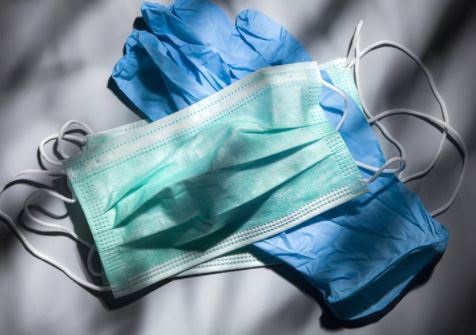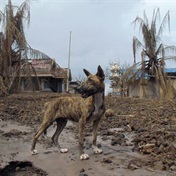
The Competition Commission continues to investigate any competition matters related to public procurement that transpired during the State of National Disaster.
Today marks exactly a year since Health Minister Joe Phaahla repealed Covid-19 regulations that made masks a requirement; however, companies that took advantage of the high demand from consumers by increasing prices continue to be sanctioned by the commission
To date, the commission prosecuted 43 Covid-19-related cases of price gouging and issued administrative penalties worth R13 069 768.02 since the wake of the pandemic.
During the height of the pandemic, a certain number of suppliers and retailers artificially inflated prices of hand sanitisers and masks, followed by toilet paper, flu medication and other products, and exploited consumers, including some food, healthcare and hygiene products.
READ: ANC set to take on retailers for price gouging and ‘racist practices’
One of the first excessive pricing cases prosecuted by the Commission was on April 28 2022, when it ordered Tsutsumani Business Enterprise to pay a R3.4-million administrative penalty for overcharging the SAPS for masks during the hard lockdown in April 2020.
Meanwhile, in May 2020, Matus, a distributor of masks and other personal protective equipment (PPE), was slapped with a R5.9m administrative penalty for inflating its gross profit margins on essential hygiene products during the Covid-19 disaster period. Matus also contributed R5m to the Solidarity Fund.
“Other companies issued with substantial fines include pharmacy and health retail group Dis-Chem (R1.2m for charging excessive prices for surgical masks) and Hennox Supplies and Sicuro Safety (R1.5m penalty and R200 000 towards the Solidarity Fund),” said Commission spokesperson Siyabulela Makunga.
Makunga added that the Commission would continue to collaborate with its counterparts in the criminal justice system through the Fusion Centre to probe these cases.
Two months ago, the tribunal also penalised the supplier of sanitisers to the SAPS for excessive price hiking during the Covid-19 pandemic.
Bluecollar Occupational Health, jointly and severally with KwaZulu-Natal-based Atletico Investments, was fined R3.5 million for inflating the cost of supplying 10 000 units of 25-litre sanitiser containers to the tune of R9.8 million.
READ: Hand sanitiser supplier the latest to be fined for SAPS price gouging
"Additionally, the Commission has observed a welcome behavioural change in PPEs. A price of surgical mask was at some point selling between R50 and R100; it's now selling for as little as R10," said Makunga.
The implications for excessive price gouging in the future
According to an international development study by John Oxenham, Micheal-James Currie and Charl-Van der Merwe in the Journal of European Competition Law, they maintain that the regulations may well have provided the appropriate balance between assessing excessive pricing cases during a period of national disaster and ensuring the fundamental principles of a traditional excessive pricing case are not compromised.
The study reads: "Had the case been assessed in terms of the regulations, this may have precluded many of the conceptual difficulties that the tribunal’s decisions present for future excessive pricing cases. The tribunal’s approach was very much a case of fitting a square peg in a round hole as it effectively rendered the regulations nugatory as any price increase of an essential good during Covid-19 may be considered excessive."
Oxenham, Currie and Van der Merwe further argue that while there can be little quibble that masks and respirators are indeed essential healthcare products required during the pandemic, how does one define (economically or legally) what goods are ‘essential’ during the pandemic?
It further reads:
Oxenham, Currie, and Van der Merwe further contend that despite emphasising that context matters and that the tribunal’s primary objective was to protect consumers from exploitative prices during a national disaster, the tribunal’s approach to the excessive pricing framework is to some degree at odds with traditional competition law objectives and lacks sufficient economic soundness which may lead to a watering down of the test for excessive pricing, which is not legally or economically sensible or justified.




 Publications
Publications
 Partners
Partners








